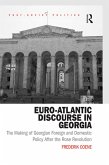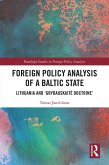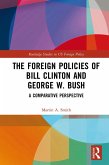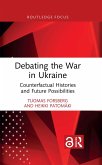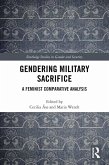How have discourses of Euro-Atlanticism been used in domestic and international affairs by the political elite in Georgia? Addressing a gap in the existing literature Euro-Atlantic Discourse in Georgia examines a large volume of data extracted from news items from 20 different Georgian and International media channels over a ten-year period. Through this the book identifies patterns in the discourse to explain the intentions of the Georgian elite and examines the effectiveness of the rhetoric.
Dieser Download kann aus rechtlichen Gründen nur mit Rechnungsadresse in A, B, BG, CY, CZ, D, DK, EW, E, FIN, F, GR, HR, H, IRL, I, LT, L, LR, M, NL, PL, P, R, S, SLO, SK ausgeliefert werden.



